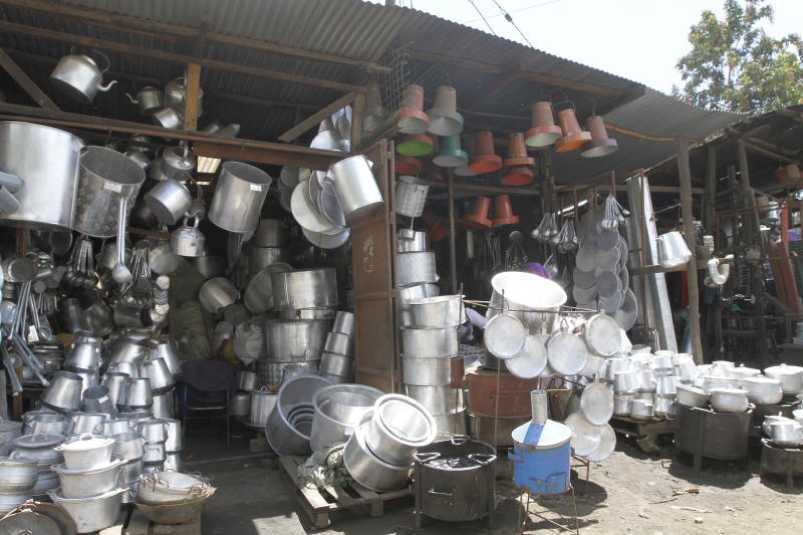×
The Standard e-Paper
Smart Minds Choose Us

Juakali sector products in landies road where they sell variety of utensils ,burglers,sufurias ,pans and many other metal products that are handmade by kenyans on 11th JANUARY 2017 [PHOTO: DAVID GICHURU/STANDARD]
Most great talent in Kenya is wasted on rent-seeking activities and jua kali jobs, delaying much-needed economic take-off, the World Bank has said.